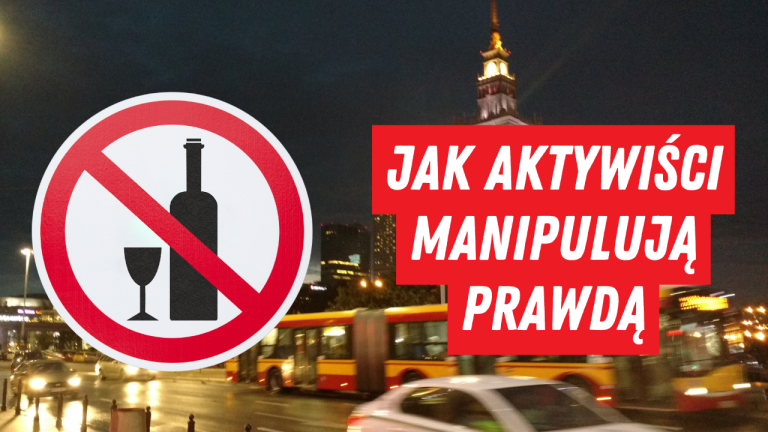The abuse of pretrial detention is a serious systemic problem in Poland, which has led to business and personal tragedies for thousands of innocent people. All it takes is a trivial rumor, slander, or a prosecutor’s vivid imagination to end up behind bars for months. The current Minister of Justice, Adam Bodnar, has announced an end to this pathology and pointed to changes the government wants to introduce. The Ministry seeks to tighten a prosecutor’s criteria to convince a judge to approve an arrest motion. According to the Warsaw Enterprise Institute, these changes go in the right direction, but we should not stop there. Poland should adopt measures like the Nordic countries, with Finland at the forefront, where pretrial detention is mainly used for those committing violent crimes.
The abuse of pre-trial detention has been a glaring problem in Poland for more than two decades. However, while the phenomenon was weakening until 2015, it began to increase again after that year. The number of people in pre-trial detention increased from about 5,000 in 2015 to 8,500 today. At the same time, the number of final convictions remained at a similar level, indicating that the percentage of innocent detainees was growing.
Although pretrial detention is theoretically an optional preventive measure in Poland, de facto, it has become mandatory. Adam Bodnar, who, while still an Ombudsman, repeatedly condemned all human rights violations and declared the introduction of legal changes aimed at curbing the abuse of pretrial detention upon taking the role of the Minister of Justice. According to the Minister’s latest announcement, the prosecutor’s office must prove the risk of escape or obstruction. The premise of a severe punishment threatening the suspect will no longer suffice for arrest, as it does now[1]. However, the minister did not specify whether the latter premise would be abolished or merely modified. The reduction of the essential detention period to one month and the introduction of a maximum detention period of two to three years are currently under consideration. The last proposed change is to improve access to a lawyer after detention, but again, no concrete solutions have been given so far.
The Warsaw Enterprise Institute has been monitoring the growing problem of pretrial detention abuse for years. In our opinion, the changes the Minister of Justice announced are a step in the right direction. First of all, we hope that the Ministry will eliminate the premise of harsh punishment. The court should specify precisely why a crime is suspected in its first justification. Unfortunately, judges often rely on general Criminal Code formulas when sentencing, using the need for severe punishment to justify their decisions and secure the proceedings. Removing the premise, which has been arbitrarily used to order arrests, will force judges to analyze the prosecution’s requests carefully. The prosecutor’s office will have the burden of showing the risk of escape or obstruction before an arrest motion is presented. Currently, the prosecutor’s office’s motions are vague. Moreover, at the stage of extending the arrest, most of them are de facto copied justifications of previously filed motions. This practice should be eliminated. For example, it should be expected that the prosecutor’s office will not only be able to prove the validity of the justification but also to indicate that it is taking actual investigative steps instead of simply conducting a superficial formal investigation. In addition, the guidelines for law enforcement agencies should be clarified so that they apply non-custodial preventive measures at the pre-trial stage by defaulte[2].
Reducing the basic duration of pre-trial detention to one month is a necessity. In our opinion, the maximum total duration of detention should not be longer than 12 months (i.e., twelve times the postulated basic duration). 12 months appear to be a sufficient period for an efficient investigation. If this is not possible, for example, due to the inefficiency of the police and prosecutors’ offices, these institutions should be reformed. The inefficiency of these institutions should not punish suspects.
The government’s announcement to ease access to a lawyer after detention should be appreciated. We call for the introduction of clear regulations defining the participation of a lawyer in a detention hearing. First and foremost, we call for the introduction of an obligation to inform the lawyer at least a few days before the hearing on the extension of detention. Currently, defense attorneys are very often only informed of the start of the hearing, preventing them from adequately preparing for it and even attending it.
WEI’s stance is that the abuse of pre-trial detention is the most prominent modern-day example of human rights violations in Europe. Innocent people, including often entrepreneurs, end up behind bars for months or even years without a sentence. Therefore, in combating this practice, it is necessary to take several steps forward and opt for systemic solutions.
In a report we published titled “No verdict, no trial, no indictment. Abuse of pre-trial detention in Poland,” we recommend introducing the Nordic model, which is based on applying the criterion of the seriousness of the offense. For example, the solution introduced in the 1970s in Finland stipulates that pretrial detention should only be used in cases of serious violent crimes. This has significantly reduced the number of detainees in Finland and, thus, the cost to the state of keeping detainees. Reducing the number of detainees is also of great importance to the detainees themselves, as overcrowding in detention centers negatively affects sanitary and living conditions. In addition, to effectively investigate abuses on the part of the authorities, human rights organizations (such as the Helsinki Foundation for Human Rights) should have increased access to the proceedings as observers. The observer should advocate for the public interest and present the court with the responsibility to consider the impact of the detention, for example, on business.
One thing is sure, in the Western value system based on respect for human freedom and dignity, the presumption of innocence is a fundamental principle. So, decisions depriving people of their liberty must always be justified on grounds beyond a reasonable doubt. If we do not remedy this area of our judiciary, we will not be able to claim that we are a country with the rule of law.
Footnotes:
[1] According to Article 258 § 2 of the Code of Penal Proceedings if the defendant is charged with committing an act punishable by imprisonment, the upper limit of which exceeds 8 years, and the court of first instance sentenced him to a term of imprisonment of not less than 3 years, the need for pretrial detention to secure the proper course of the proceedings may be justified by the threat of severe punishment to the defendant.
[2] The Code of Penal Proceedings provides for only one custodial measure, namely, pretrial detention (Article 258 of the Code of Penal Proceedings), and the following non-custodial measures: property surety (Article 266 of the Code of Penal Proceedings), social surety (Article 271 of the Code of Penal Proceedings), personal surety, also known as surety of a trustworthy person (Article 272 of the Code of Penal Proceedings), police supervision (Article 275 § 1 of the Code of Penal Proceedings), conditional police supervision (Article 275 § 3 of the Code of Penal Proceedings), an order to periodically leave a dwelling occupied jointly with the victim (Article 275a the Code of Penal Proceedings), an order to periodically leave a dwelling occupied jointly with the victim (Article 275a of the Code of Penal Proceedings). p.c.), conditional police supervision (Article 275 § 3 of the Code of Penal Proceedings), an order to periodically vacate a dwelling jointly occupied with the victim (Article 275a of the Code of Penal Proceedings), suspension of the accused from certain activities (Article 276 the Code of Penal Proceedings), a prohibition on approaching the victim at a specified distance, (Article 276a of the Code of Penal Proceedings), and a prohibition on leaving the country (Article 277 of the Code of Penal Proceedings).





